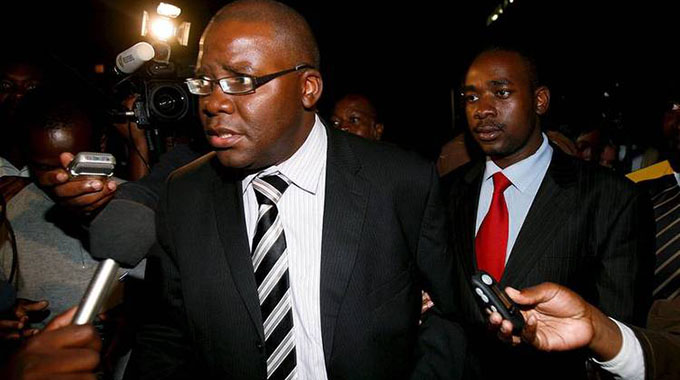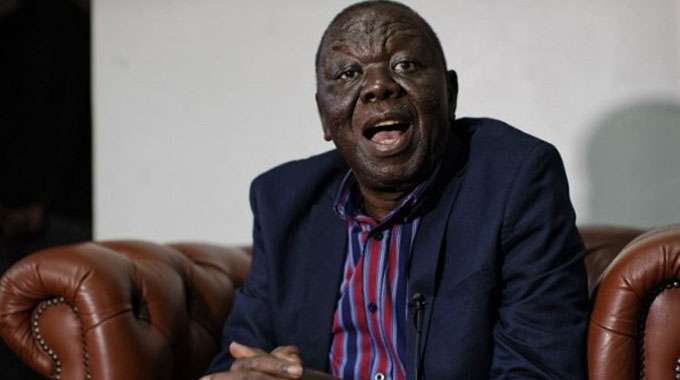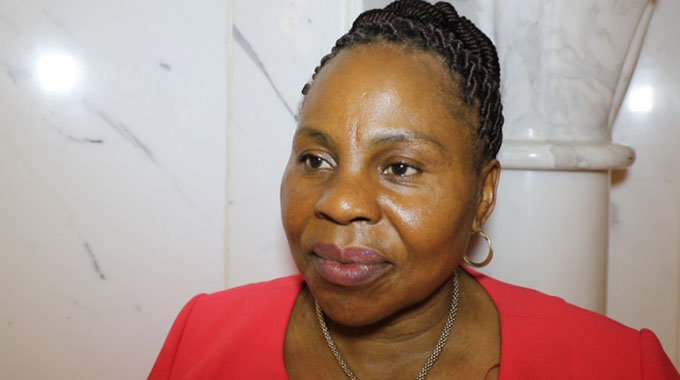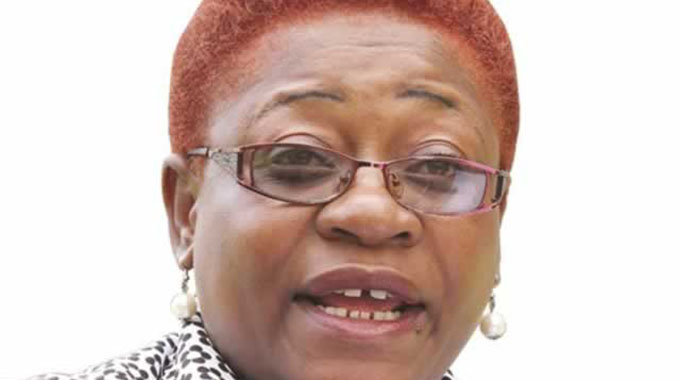Identity in politics

Reason Wafawarova on Monday
Politicians want to benefit from polarity and singular political identities, especially during election times; as is the case with our country now. However neither polarity nor singular identity is good for people’s freedom and general development.
The more identities people assume in life, the freer their minds; and the narrower the definition of identity the less free people are.
This is just a general trend, not only in politics, but also in relation to other group identities.
We have created a narrow and strict definition for something called an MDC supporter, and a counter-being to that called a ZANU-PF supporter.

The late Morgan Tsvangirai
These labels tend to cage people into some kind of political captivity that only yields backward thinking and disunity.
We know how the problem of religious identity has been linked to such notoriety such as the ISIS menace.
It has been proven over and over again that religious extremism can be deadly.
The more people identify with a religion the more they submit to certain narrow and strict moral and social values; and often the less tolerant they become.
The myth that only Islam is associated with extremism is in itself an extremist bigoted view against one religion by another.
History does have numerous examples of killings that were carried out in the name of Christianity, for example. The Crusaders were not the most tolerant of people, and today there are atrocities that are justified on perceived biblical grounds, especially in Gaza.
Lately, the Zimbabwe Peace Project has been producing reports showing the MDC-T leading in statistics of intra-party political violence, especially after the death of Morgan Tsvangirai. Regardless of such empirical evidence, the general belief in opposition circles is that violence is the identity of one party in Zimbabwe, and every one else is just a mere victim.
Loose and reckless labels like “murderer” are randomly thrown at everyone seen as a member or supporter of ZANU-PF, including writers like myself.
The more people subscribe to certain relationships and routines, the less individual they become, the less free they are, and the more narrow minded they become.
They become slaves of the overbearing beliefs shaping their faith, or their support for a political party.
So we get people endearing themselves to a political movement and investing tonnes and tonnes of emotion into it all; antagonising everyone of a different view as an enemy.
Political fanaticism is inherently undemocratic, and it is sad when it is practiced in the name of democracy, or when the political fanatics profess to belong to pro-democracy movements.
As indicated already for matters of religion, it does not matter which religion it is, the effect is usually the same.
It could be a pastor, a priest, a nun, a monk, or a sheik, the trend is often that such a person tends to present an overriding singular identity to the world, and quite commonly, the person almost demands to be treated by all others chiefly in terms of the title or identity they carry.
Political identity in Africa has the same effect, and this is the major cause of political violence, as well as the polarity and intolerance that has become synonymous with our politics.
Supporters of our political parties are often fixated to dogmatic political brands and slogan that are narrowly defined by singular group identities.
“Chamisa chete chete!”, just like “VaMugabe chete chete!” of the time; is a bigoted slogan intended to frog-march unwilling people into supporting an idolised politician benefiting from irrational support coming from emotion-driven fanatics, or fools by other causes.
In Zimbabwe there are people who are MDC or ZANU-PF by definition, and these are not necessarily the people in the party structures, or even aspirants.
These are ordinary citizens that deliberately choose a permanent identity with a given political organisation, and principally they believe that only their political identity matters. This kind of fanaticism is what is undermining democracy in Africa.
The national interest gets relegated to the periphery so people can elevate an idolised political character to political sainthood.
From however many the number of angles one might want to look at things, the reality of the country is that we are in an evident transition from the Mugabe era into a new dispensation, with a new leader, a new vision, and a new direction.
It is sad when any success or potential success in this transition is derided because it is seen as undermining the chances of ascendancy for some politician outside government.
We cannot be hankering for failure of an incumbent government just because we reckon such failure will prop up our desired political leaders into office. Such immaturity can never build a nation.
We can forget that such people are trying to dictate to all others how they should treat them, because there is a more worrying aspect of their behaviour: they expect other people to accord them a certain value, failure of which they are ready to bludgeon their way.
Democracy is a merit game, not a numbers game.
Countries are developed by meritorious leaders, not by leaders with the tricks to win numbers during elections.
Not every landslide electoral victory produces a successful government. In fact most landslide electoral victories have produced disastrous administrations.
We now have drawn these political boundaries where those in ZANU-PF lay claim to the value of patriotism, while those in the MDC formations lay claim to the value of democracy. So the media says the MDC is the “democratic movement”, and ZANU-PF is the “revolutionary party”.
Every party in a democracy is democratic, and equally no single party is revolutionary by definition.
Every political party can embark on a revolution whenever a need for a revolution arises.
When an ideology enslaves someone into narrow-mindedness it is serving the wrong purpose. An ideology must be a fountain from which freedom and sound policies for the betterment and development of people come, not some dogmatic political identity causing civil conflict and strife among the people.
Our treatment of each other as citizens of Zimbabwe does well to start on a basis of mutual respect, as must be invited by our common nationality, and above all by the supreme concept of humanity.
We must be decent human beings before we are citizens.
This vanguard mentality where young people are used to bludgeon diversity into conformity is totally unacceptable, and must end.
This is why ED Mnangagwa must be hailed for his efforts in creating this much needed democratic space in our country at a time such as now.
It is this mutual respect that will enable us to relate to each other as worthy human beings. But do we not see this meaningless politicking where nothing good can ever come from the other side?
If we cannot see anything good in Chamisa because he is not ZANU-PF, or in ED Mnangagwa just because he is ZANU-PF; all it means is we are intolerant, and essentially undemocratic.
Our politicians safeguard more the political identities of the people who support their parties more than they care about the welfare of other same people, or even the greater good of the country. Of course, it is the blind loyalty that gives them the votes, and they would rather protect than discourage it.
This is precisely why we have a dearth of policy in our political affairs, with people debating personalities ahead of issues, and trivialities making headlines in our media.
So the voter wants to know how much leadership is in a leader, and all that is provided by mainstream and social media is slander and vilification.
One cannot reduce themselves to a mere political animal and suddenly forget that they are a father, a brother, a professional, someone’s friend, a church member, a student and so on and so forth; all rolled into one.
Our interests, our insights and our experiences must make us valuable to the rest of the people. They must not drive others into fear, hate, intolerance or revulsion.
The more we move away from dogmatic political identities the more potential we create for ourselves, and the better chance we have for a freer and happier society. The imprisonment of a single overriding identity will limit our human potential, and it does not matter whether the identity was chosen or imposed.
Here is a message for Africa. We cannot build our countries when we are divided among ourselves, whether by chosen differences of ideology, by religion, political affiliation, or by economic self-interests.
Race and ethnicity are not matters of choice, and it is simply primitive to imagine that someone can change the way they were born, or that they can do something to get rid of who they are.
Often politics will play on ethnic and racial differences, and the situation sometimes deteriorates into genocides or similar atrocities. Slavery, colonialism, and imperialism had their origins in race politics, and humanity has in history exhibited monstrous tendencies based on the race identity.
This essay is not an attack on the ideologies of political parties, and it is neither an attack on any singular identity that may be enjoyed by members of any organisation, political party, race, religion or ethnic group.
Rather it is an encouragement to tolerant co-existence.
We can no longer in a political era where natural misfortunes like illness or death are celebrated simply on the basis that they have befallen someone belonging to a different political identity.
We cannot assassinate humanity on the altar of political expediency. We must be humans before we assume any other identity.
Were we not all touched as a nation when we saw Morgan Tsvangirai and ED Mnangagwa holding hands like brothers in the last days of the former?
Is that not the Zimbabwe we want, where humanity guides our politics, not the other way round?
Humanity is about passion, mutual respect, solidarity and kindness.
When a singular political identity becomes so overbearing that it disregards humanity itself then the person carrying that identity has become enslaved, imprisoned and is in dreadful captivity.
That person is not only a danger to himself and to others, but also a mark of tragedy on humanity itself.
We cannot ignore the fact that identity politics have risen because of lack of social justice in the past; and this is what has created the “them” and “us” philosophy.
We hear Zimbabwe is divided between “EDiots” and “Madzakutsaku,” or between “Comrades” and “Sell-outs,” as we said in yesteryear politics.
We must be united as voters for the betterment of our country, only separated by our diverse opinions and preferences, nothing less and nothing more.
So it becomes “them” and “us”, and the labels begin.
We cannot even agree that we are in a new dispensation because if we do so ED will get the glory for it, and “they” cannot be credited for anything. It is sad when a leading politician like Tendai Biti is a breed from the hell-fire of intolerance and bigotry.
So we have people who think in terms of “they” are depriving “us” of something we need, desire or deserve; oppressing “us” with impunity, and by “they” they principally bunch everyone perceived to be sympathetic to the other side.
So you write from Australia like this writer and you are roundly condemned as a “murderer” just because someone’s perception is that your political inclination could be different from theirs; or does not promote enough their own political preferences.
Then we have people who think “they are disrespecting what “we” value most, especially “our” liberation war legacy, or “our” patriotic values. So they declare that nothing outside the scope of the liberation part of our history has any political meaning, and will ever have.
I hear they now say in opposition circles that you cannot be leader enough unless you passed through ZINASU, or some SRC post of some sort.
We know from a practical point of view that there is no such thing as equality in terms of things like income, or strict distributive equality where we all own the same goods and materials.
Even political equality does not exist in a democracy, and that is why there are winners and losers.
One can even argue that we are not equal before the law because we have to pay heftily for justice, and the majority of us cannot afford it. In this regard it is even harder to talk about equality of rights.
When we open up our minds and avoid a singular identity we will begin to understand that sameness is not equality, and that equity is what we really want.
Our political choices must revolve around the opportunities that surround us, the pathways we develop for ourselves towards attaining sustainable lives.
Now we hear the President is calling for investment in Zimbabwe, and is frantically fighting to revive industry. Why are we getting negative coverage of such nobility? Why did he not do the same in the last three or four decades? The answer is that ED Mnangagwa was not the President of Zimbabwe until and of November 2017. His accountability as Head of State starts exactly there, not before.
When people are defined by singular political identity there is no such thing as nobility, they just see evil in anything done from the other side.
Our politicians must be stopped from benefiting from marketing the polarising brand of their political parties as a way of securing the vote. Our votes must only reward politicians on the basis of policy articulation.
Come on fellow Zimbabweans: let us vote maturely for a start, come July 30!
Zimbabwe we are one and together we will overcome. It is homeland or death!
Reason Wafawarova is a political writer based in Sydney, Australia.









Comments